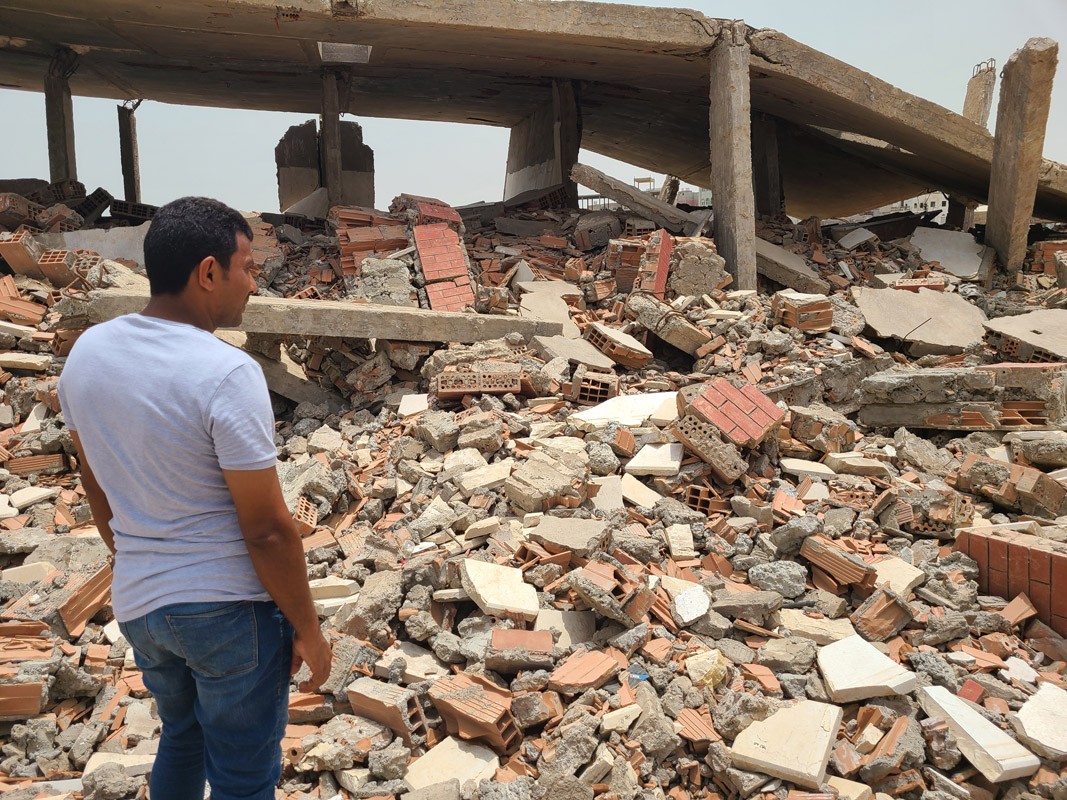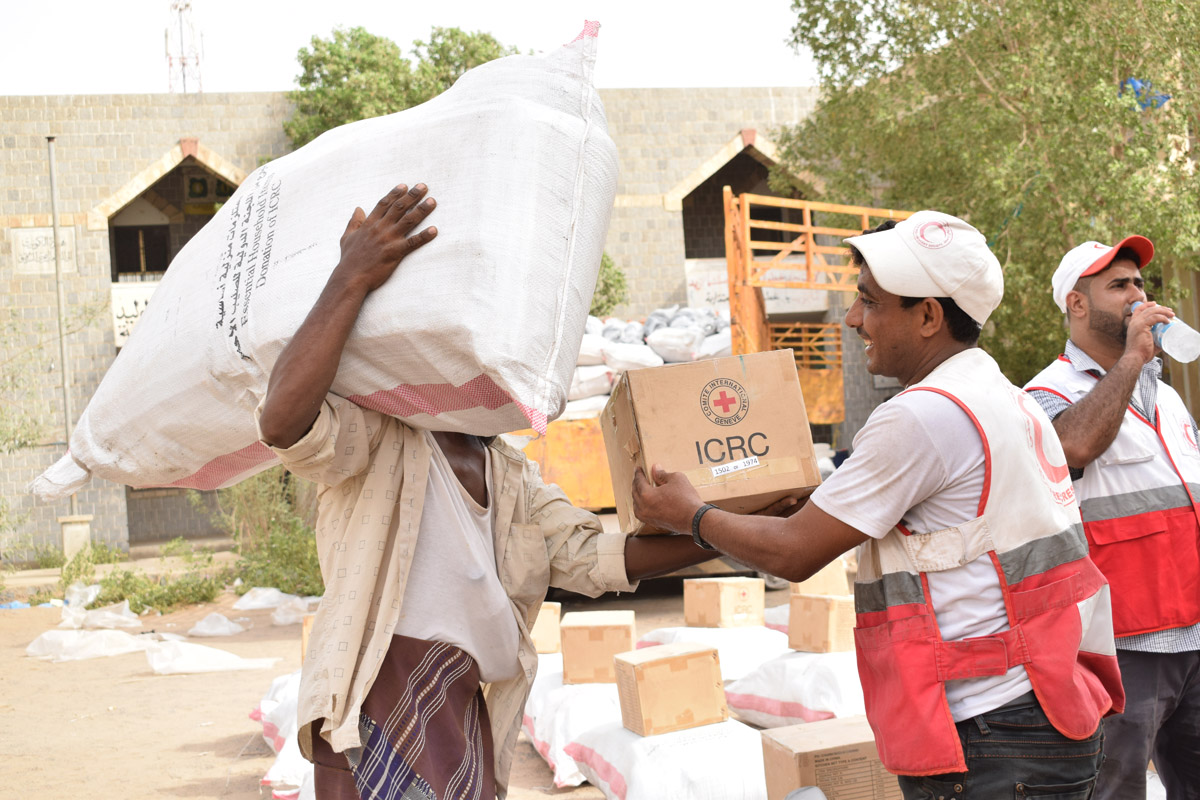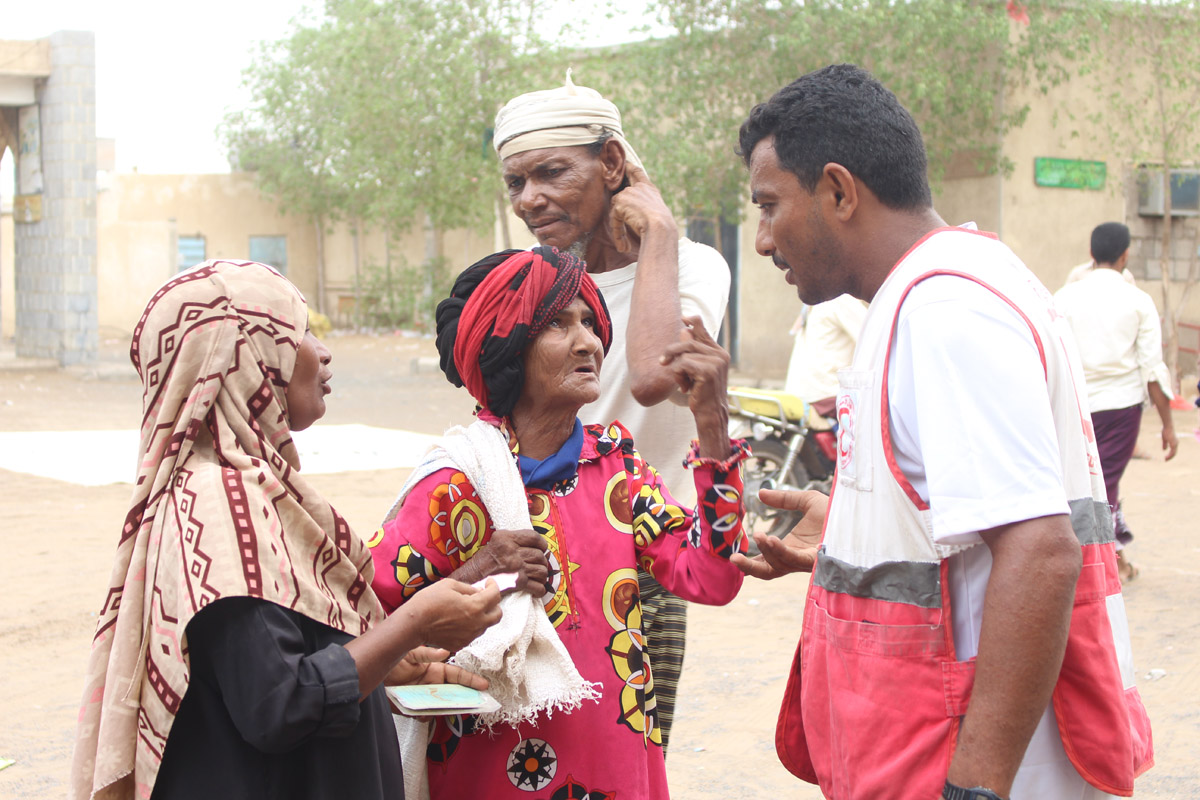Deeper into the role
Osama remembers one situation that pushed him even deeper into his role as a volunteer: a dengue outbreak in Al Hudaydah that made an already desperate situation in the govenorate even worse.
While 20 million Yemeni people lacked access to basic healthcare, half of the country’s health facilities were either partially or completely damaged by war, leading to dramatic increases of inendemic diseases and epidemics.
“The dengue epidemic reached our home where I live with 16 members of my family, including four children. It was difficult to access healthcare and even to purchase medicines due to the economic situation. I took my eight-year-old brother Rakan to the Health Center of the Yemeni Red Crescent Society, hoping he would be cared for at the center. He was treated there until the staff were certain that he had recovered and was not in danger anymore.
“This kind of assistance was not provided because of my work as a volunteer in the Red Crescent — it is available to all members of the community. The centre provides medical care services to all, and the number of beneficiaries is more than 1,700 people.”
“The moment I arrived at the centre, holding my brother in my arms, was like a dream. I went there as a person in need and was received by a team that helps everyone. I realised after my brother’s recovery that working with the Red Crescent was also an opportunity to give something back, to return the favour, so to speak.
In the meantime, this gregarious, outgoing volunteer can also nurture the stage actor that is always inside him, never far from the surface.
“Even if I cannot appear on stage, I can at least do this for the Yemeni Red Crescent Society as a volunteer and play around for the kids,” Osama says with a smile. “That makes me happy and proud.”
 Red Cross Red Crescent magazine
Red Cross Red Crescent magazine 









